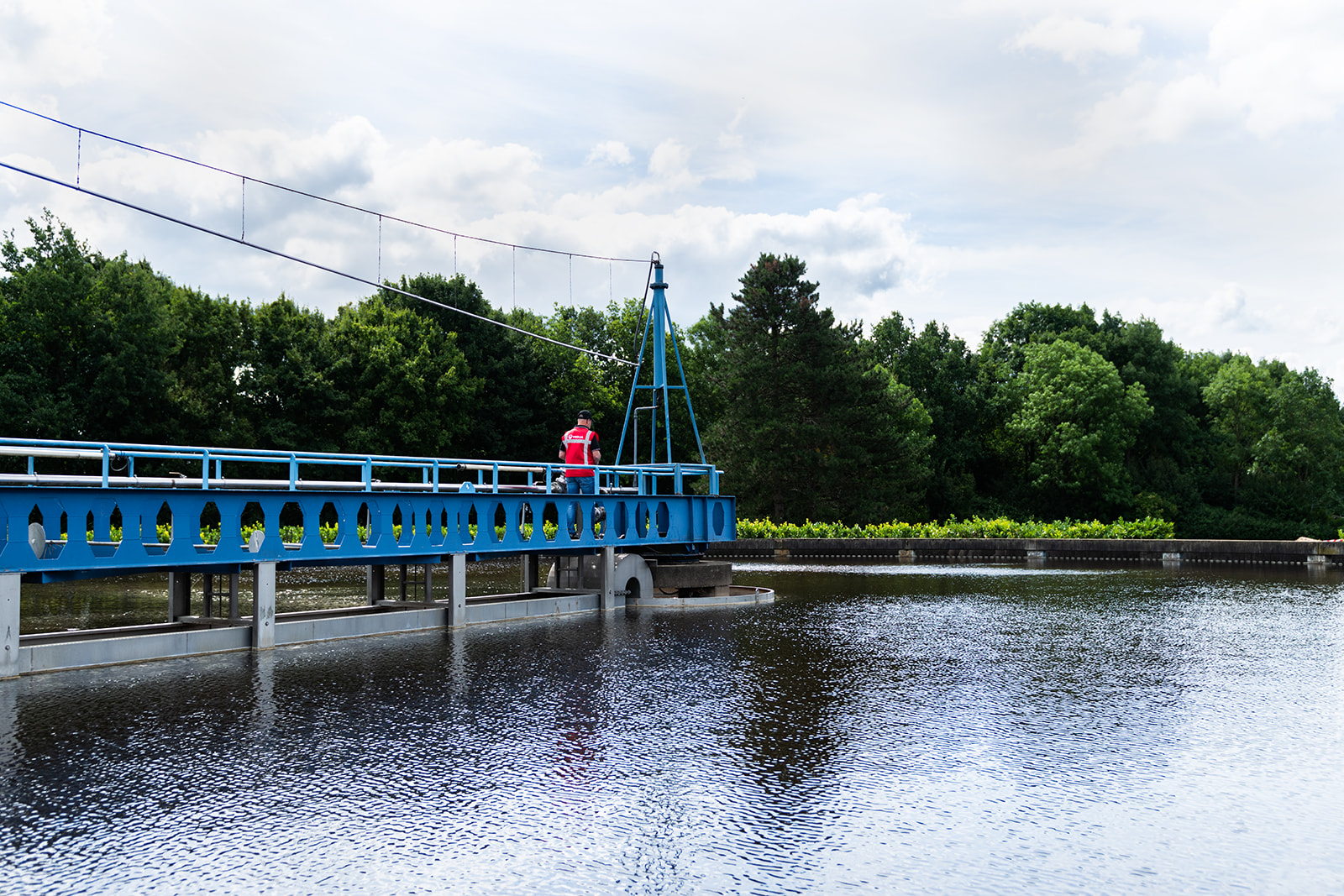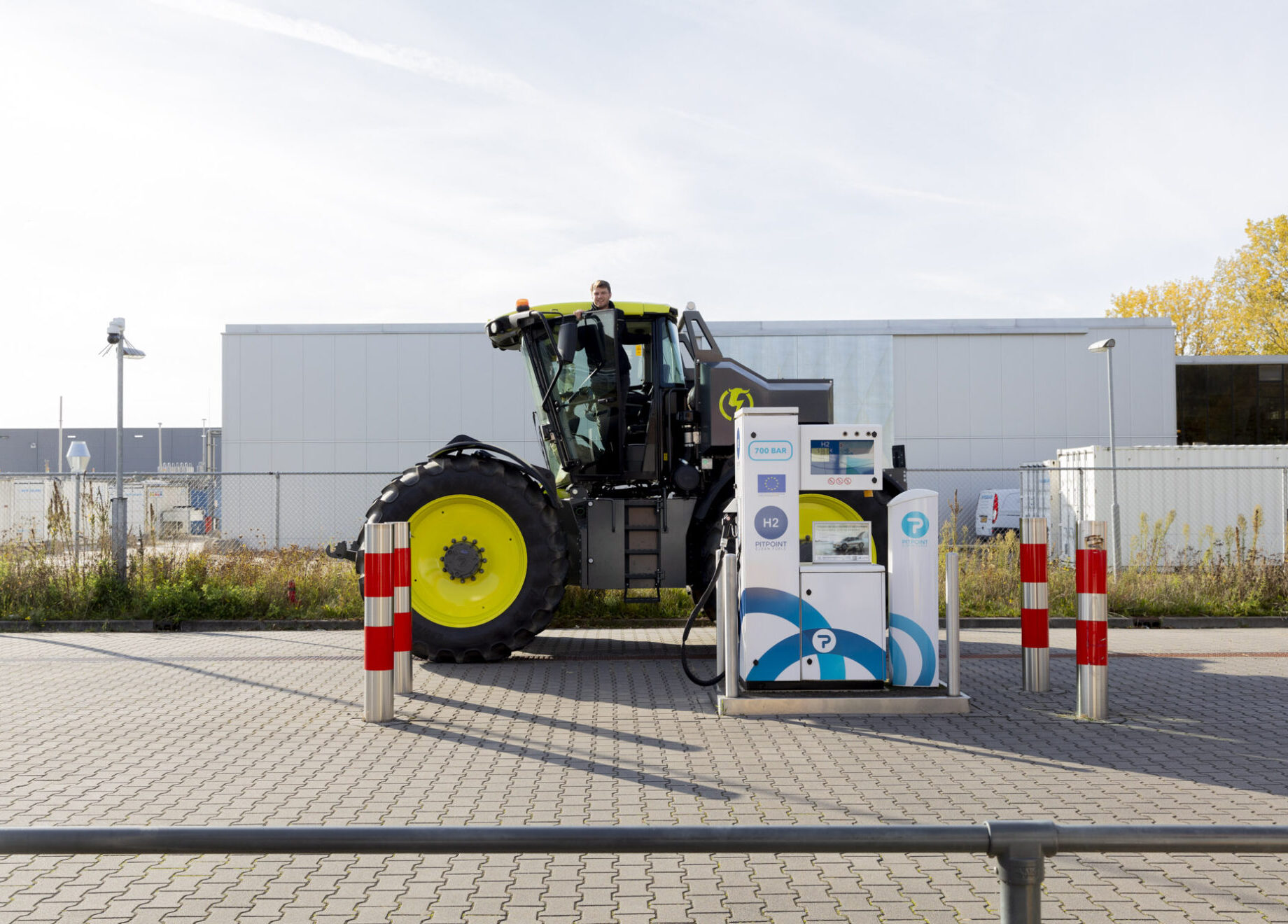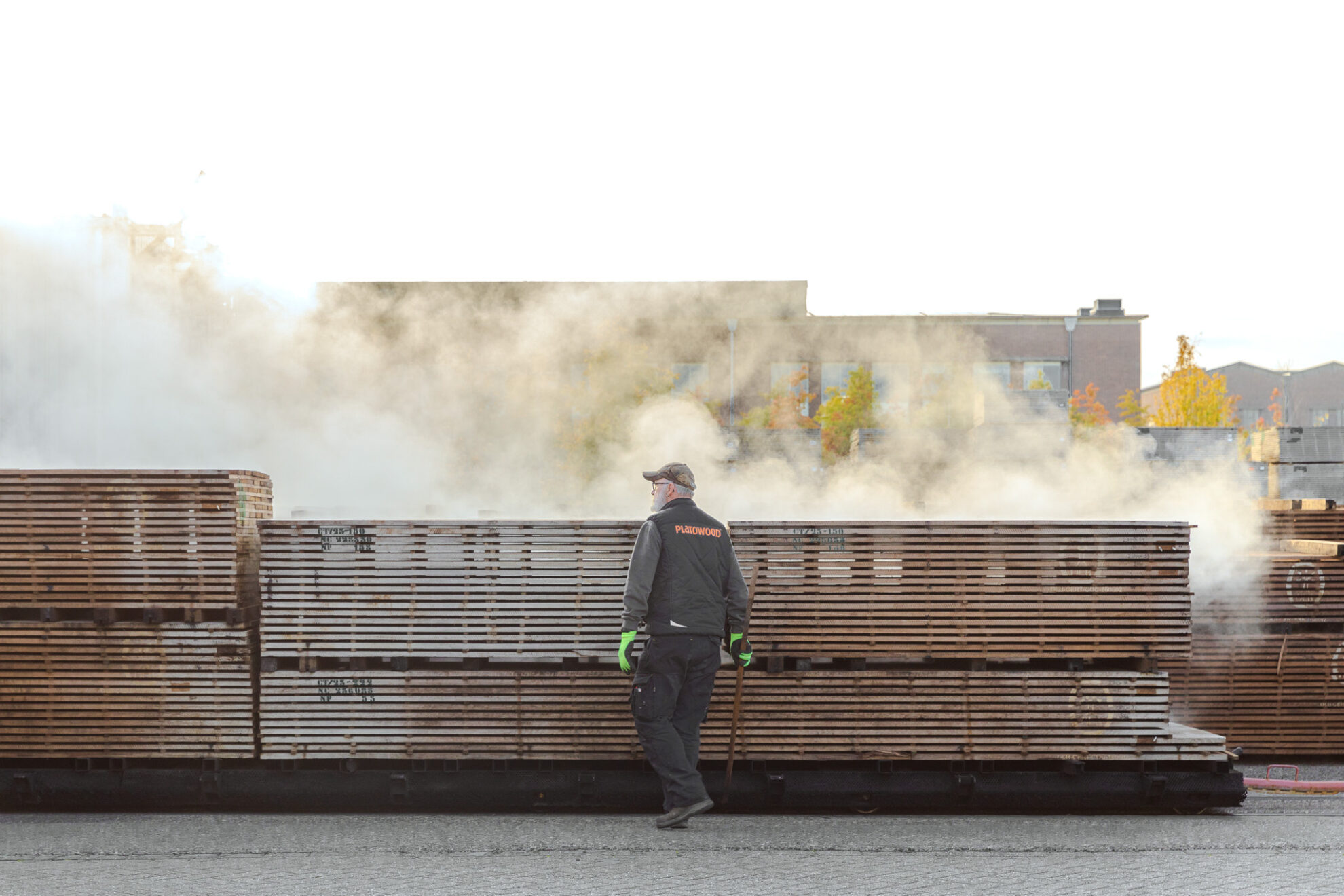Engine of Sustainable Innovation
At Cleantech Park Arnhem, environmental services company Veolia plays a crucial role in the energy transition. As the local provider of water and energy, Veolia is making significant strides toward a sustainable future. Since 2014, Veolia has been responsible for supplying all essential utilities at Cleantech Park Arnhem: from electricity and steam to cooling and process water. As the owner of the energy plant and wastewater treatment facility, Veolia supplies the companies on the park with steam, electricity, heat, cooling, compressed air, and demineralized water. This unique position makes Veolia both a tenant and a supplier.
The complex and essential infrastructure is fully tailored to the industrial users. Through collective energy and wastewater treatment solutions, tenants benefit from economies of scale and potentially lower operational costs than if they arranged these individually. “You could say we manage a small, self-contained country here,” says Jan Lenstra, CEO of Veolia Netherlands for two years: “We deliver energy, treat wastewater, manage networks — all on a secured site, perfectly adapted to the needs of the park’s tenants.”
Clean Wood
The sustainability efforts at Cleantech Park Arnhem are both visible and tangible, closely aligned with Veolia’s initiatives. For example, residual heat that was previously lost is now captured in a district heating network that warms a large part of the park. Additionally, Veolia invested in a bioheat installation — a stepping stone towards fully gas-free operation. This installation uses clean pruning wood from regional forest and park management as fuel, reducing CO₂ emissions by about 20,000 tons annually and lowering natural gas consumption. The steam, heat, and electricity generated cover the basic needs of the companies on site.
Next Sustainable Ambition: More Electric Generation
“According to a letter from Minister Wiebes in 2018, we are among the top 25 natural gas consumers in the Netherlands,” Lenstra explains. “But we cannot switch to a sustainable solution if it jeopardizes the continuity of our service. That’s why we are moving toward a hybrid system. Once we receive confirmation from Liander that sufficient grid capacity is available, we will start building,” Lenstra adds. “This could become a reality by early 2027.”
“The sustainability efforts at Cleantech Park Arnhem are visible and tangible, progressing hand in hand with Veolia.”
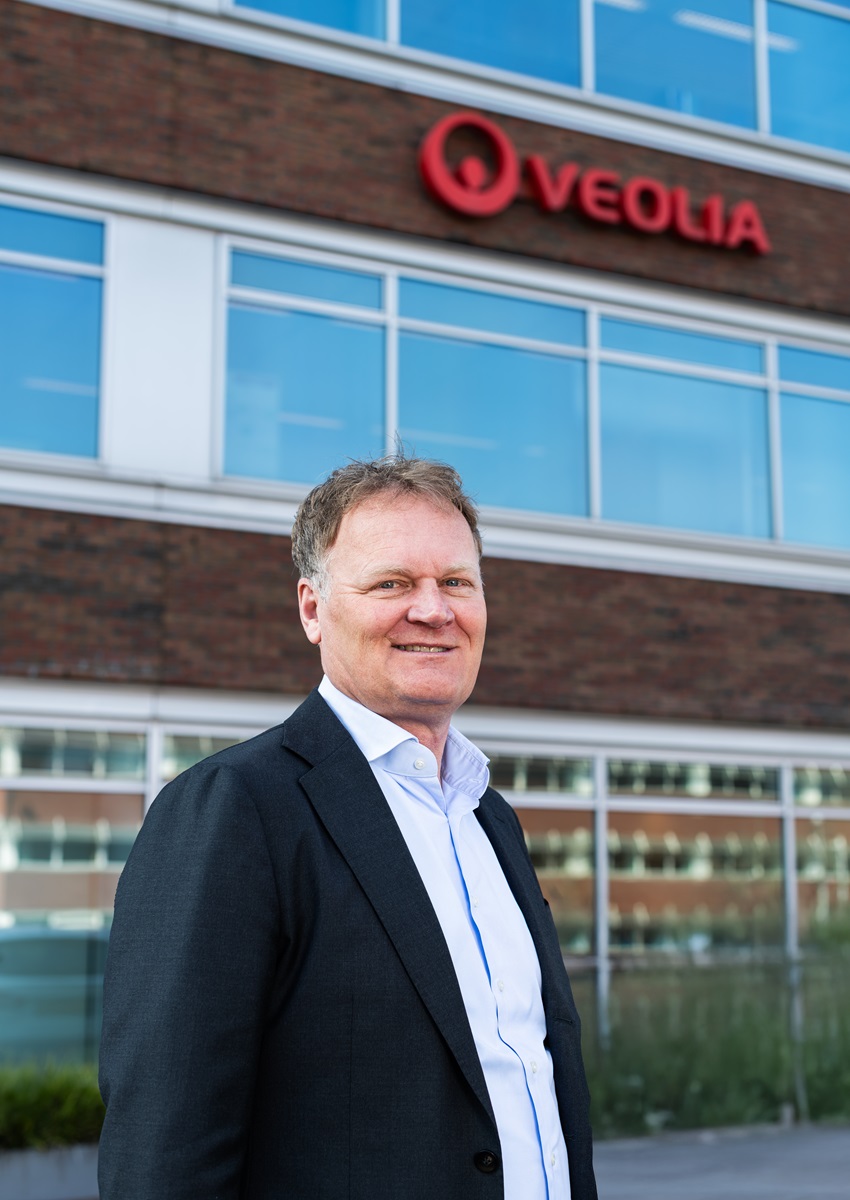
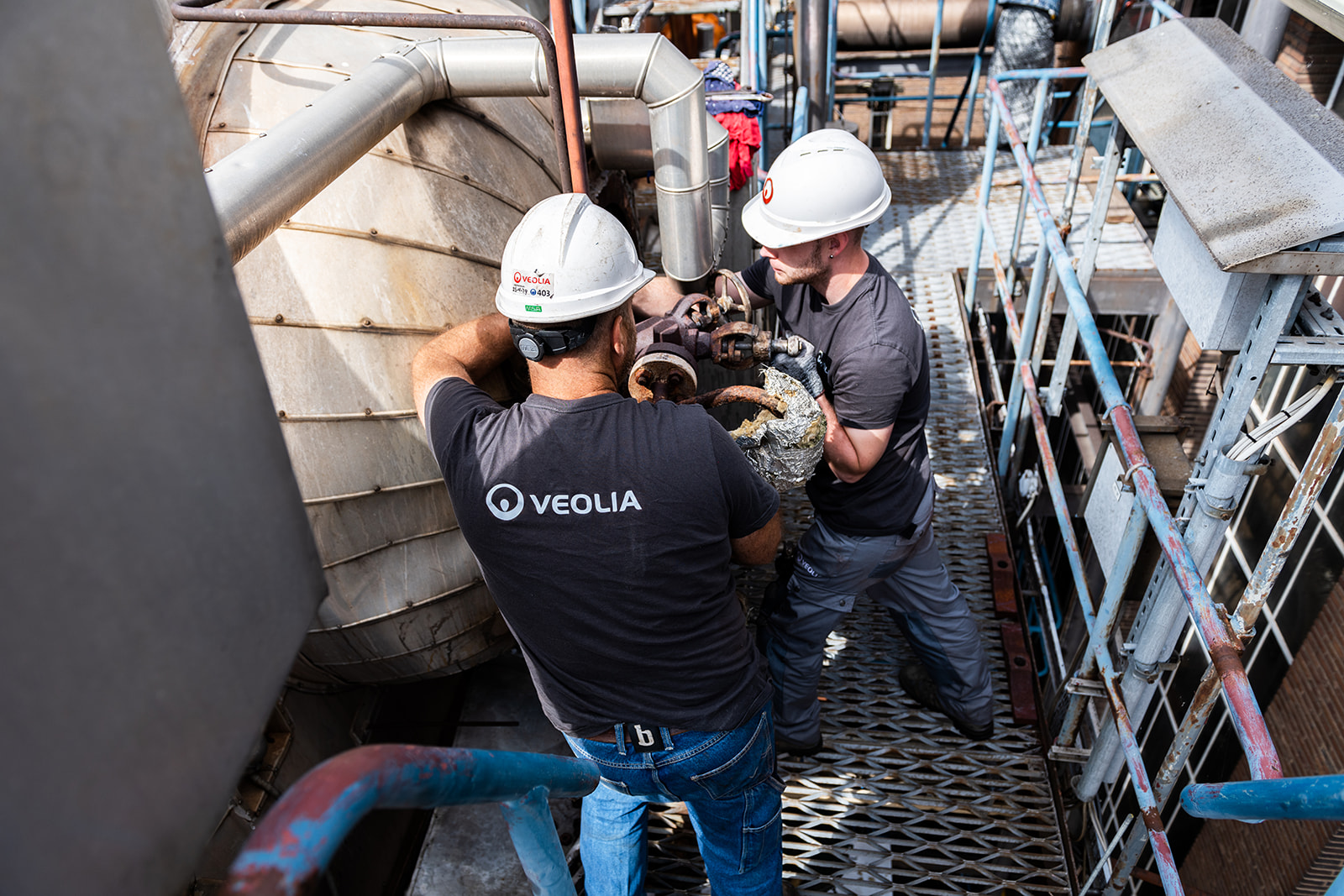
Smart Meters
Since the acquisition in 2010, Veolia has increasingly adopted a data-driven approach. Digitalization plays a key role in optimizing operations and achieving sustainable solutions. Jan Lenstra explains: “Thanks to continuous data collection, maintenance can be scheduled intelligently, keeping installations running as efficiently as possible. This minimizes downtime and allows us to better manage peak loads. Digitalization also enables us to monitor emissions more accurately and ensure compliance with regulations. By using predictive analytics, we not only save on maintenance costs but also improve safety—system anomalies are detected earlier. Regular ‘peak measurements’ ensure that our installations meet strict requirements and continue to perform under demanding conditions.”
Smart and Circular Thinking
Veolia also leverages its position to seize circular opportunities. Wastewater is reused as much as possible through biological treatment. An installation purifies wastewater on-site using bacteria that break down pollutants. This process purifies the water up to 98% before it is discharged into the IJssel river. Furthermore, Veolia participates in innovative pilots, such as with RIFT (Renewable Iron Fuel Technology): “RIFT was able to build a test setup on-site so they can test their technology in practice,” says Lenstra.
In waste management as well, Veolia opts for smart, sustainable solutions. Waste generated on-site is processed as much as possible in-house. This includes using a transport solution with only one electric vehicle, contributing to reducing CO₂ emissions. This way of thinking and acting—smart, circular, and future-oriented—is characteristic of the role Veolia aims to play within the industry and the energy transition.
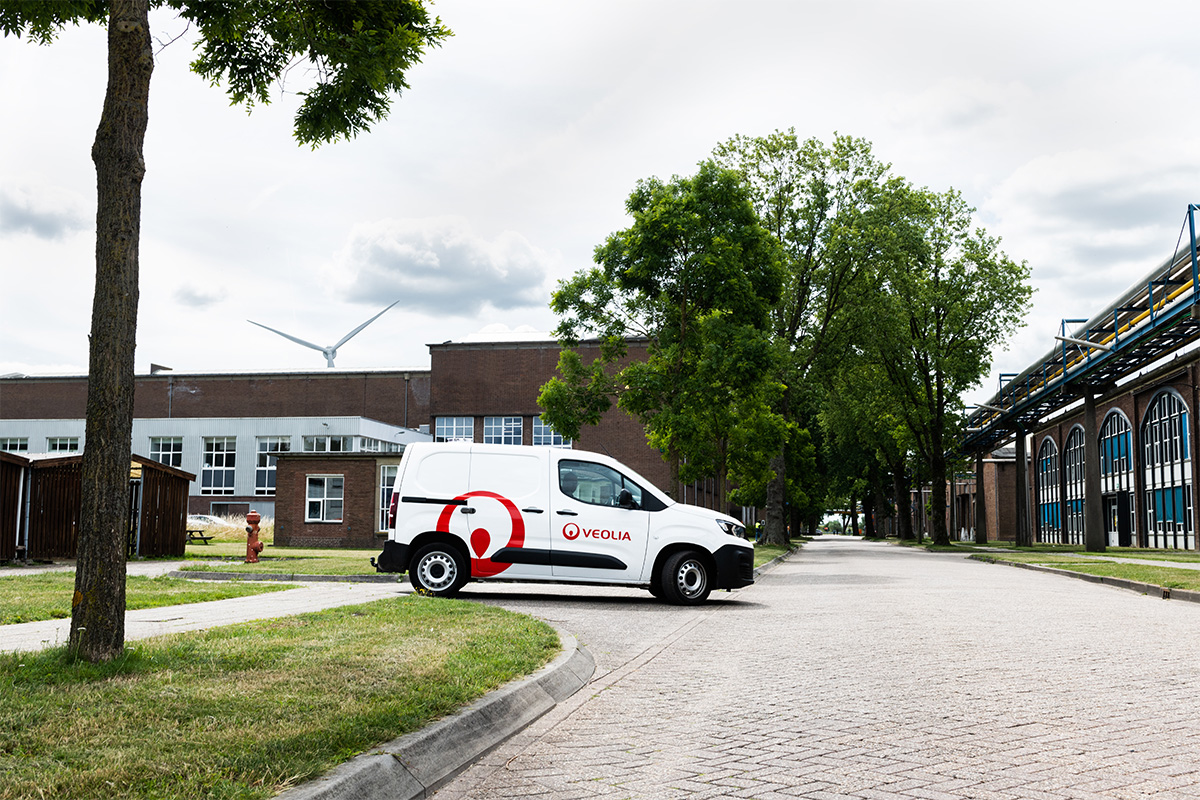
Collaboration
One of the most powerful tools in Veolia’s sustainability strategy is collaboration. Veolia works closely with the park management of Cleantech Park Arnhem and tenants such as RIFT (Iron Fuel Technology™). “With large companies like Nouryon, we coordinate our maintenance shutdowns to minimize the impact on production processes. Coordination is crucial—if the electricity or steam supply fails, an entire factory can come to a halt,” says Jan Lenstra.
Lenstra also expresses the ambition to increase visibility: “We should communicate more clearly about everything we do here. We no longer operate with the installations from 2014, let alone those from 1942. Every year, we invest an average of 1 million euros to modernize and optimize our installations, structurally improving efficiency and reliability.”
Clean and Green
The municipality of Arnhem and the Environmental Agency closely monitor innovations on the park and integrate them into their own sustainability policies. Veolia’s goal is clear: Cleantech Park Arnhem must become a showcase for sustainable, reliable energy supply. The transition to a gas-free future is being carefully and gradually implemented. Through investments in hybrid systems, waste heat recovery, electrification, and innovative technologies like iron powder combustion, Veolia demonstrates how industry and sustainability can go hand in hand. “We guarantee the most sustainable energy supply possible using the best available technologies. If we can generate steam electrically while also ensuring continuity, that will be a huge step forward,” concludes Lenstra.
For Veolia, the goal is clear: Cleantech Park Arnhem should become the beacon of sustainable, reliable energy supply.
